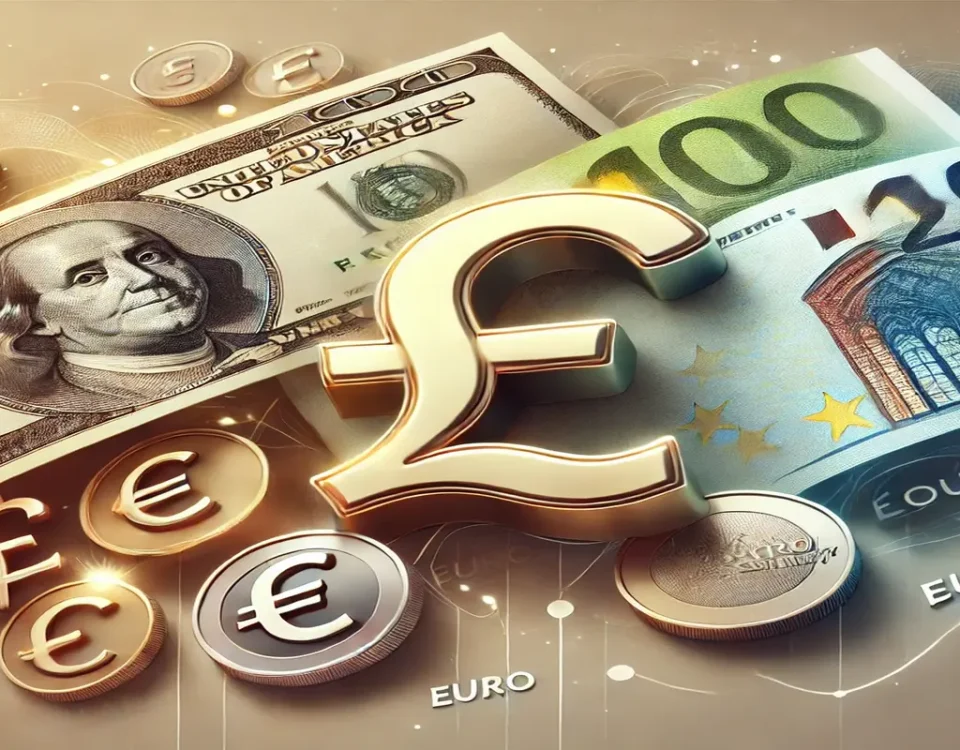
US futures rise at start of Q2, fresh record for gold- what’s moving markets
01/04/2024
South Korea March consumer inflation +3.1% y/y, matching forecast
01/04/2024Warren Buffett Has $157 Billion Invested in These 2 “Magnificent Seven” Artificial Intelligence (AI) Stocks

Warren Buffett Has $157 Billion Invested in These 2 "Magnificent Seven" Artificial Intelligence (AI) Stocks
Warren Buffett, known for his preference for traditional value investing over high-growth stocks, has made significant investments in two artificial intelligence (AI) giants within Berkshire Hathaway’s (NYSE: BRK.A) (NYSE: BRK.B) portfolio. Despite his usual stance, Buffett’s confidence in these companies, both members of the prestigious Magnificent Seven, suggests potential for strong returns regardless of investment style.
Here’s a closer look at the two Magnificent Seven AI stocks Buffett has invested $158 billion into:
- Apple ($155.3 billion)
Apple (NASDAQ: AAPL) has become Berkshire Hathaway’s largest equity position by a significant margin. Buffett began accumulating shares of Apple between 2016 and 2018, and the stock’s phenomenal growth since then has led to Berkshire’s position ballooning to a value of about $155 billion today.
While Buffett has trimmed his Apple position a few times in the past, it seems to have been primarily for tax purposes. In fact, Buffett has expressed regret over selling shares given tax opportunities in the past, but he appeared to repeat the same mistake at the end of last year.
Given the size of Berkshire’s position in Apple, there should be no doubt about Buffett’s belief in the company and its potential to produce strong results going forward. Buffett even called Apple “a better business than any we own” at Berkshire’s annual shareholder meeting last year.
So, what does Buffett like so much about Apple?
Although Apple is involved in various technologies, including artificial intelligence, Buffett views it as an unparalleled consumer products company. There’s no consumer product more ubiquitous than the smartphone, and Apple’s share of the smartphone market, particularly the premium segment, is unmatched.
In recent years, Apple has capitalized on its position by expanding its ecosystem and developing a large services business. The iPhone has transformed into a platform business, contributing to expanding profit margins. Services, as a group, generate nearly double the profit per dollar compared to Apple’s hardware sales.
Buffett also appreciates Apple’s massive capital return program. With Apple buying back a significant portion of its shares each year, Berkshire’s stake in Apple increases gradually. Apple generates around $100 billion in free cash flow annually, returning almost all of it to shareholders through dividends and buybacks. Consequently, shareholders, including Berkshire Hathaway, can claim a larger stake in Apple’s earnings every year.
Apple shares trade at a forward P/E multiple of 26, a slight premium to the S&P 500, justified by its significant cash position and share buyback program.
- Amazon ($1.8 billion)
The other Magnificent Seven member in Berkshire’s portfolio is Amazon (NASDAQ: AMZN). Amazon is not typically considered a Buffett stock, as he once mentioned that the business is outside his circle of competence. However, Berkshire holds about $1.8 billion worth of Amazon stock, likely initiated by one of Buffett’s partner portfolio managers, Ted Weschler or Todd Combs, in 2019.
There’s much to admire about Amazon. Buffett acknowledged its transformative impact on consumer behavior back in 2017. The Amazon Prime network has become a significant competitive advantage for the business, fostering customer and merchant loyalty. This creates a flywheel effect, enabling Amazon to invest more in Prime benefits and faster shipping, attracting more shoppers and merchants.
Buffett is also impressed by Amazon’s cloud computing business, which contributes significantly to Amazon’s operating income. With the growth of artificial intelligence, this segment could expand rapidly, and Amazon is investing heavily to stay competitive. This includes a $4 billion investment in Anthropic and the development of AI training and inference chips for its servers to support new large language models and AI-powered applications.
The rapid growth of Amazon’s cloud computing business, coupled with its growing advertising sales, should support continued margin expansion, leading to robust free cash flow growth — the primary metric by which management evaluates its financial performance.
Amazon trades at a price-to-sales ratio of just 3.29, below its five-year average, despite increasingly promising prospects for margin expansion.
Before investing in Berkshire Hathaway, consider this:
The Motley Fool Stock Advisor analyst team has identified what they believe are the 10 best stocks for investors to buy now, and Berkshire Hathaway wasn’t one of them. The 10 stocks selected could potentially generate significant returns in the coming years.
Stock Advisor offers investors an easy-to-follow blueprint for success, including portfolio-building guidance, regular updates from analysts, and two new stock picks each month. Since 2002, the Stock Advisor service has more than tripled the return of the S&P 500*.
*Stock Advisor returns as of March 25, 2024.
John Mackey, former CEO of Whole Foods Market, an Amazon subsidiary, is a member of The Motley Fool’s board of directors. Adam Levy holds positions in Amazon and Apple. The Motley Fool has positions in and recommends Amazon, Apple, and Berkshire Hathaway. The Motley Fool follows a strict disclosure policy.


